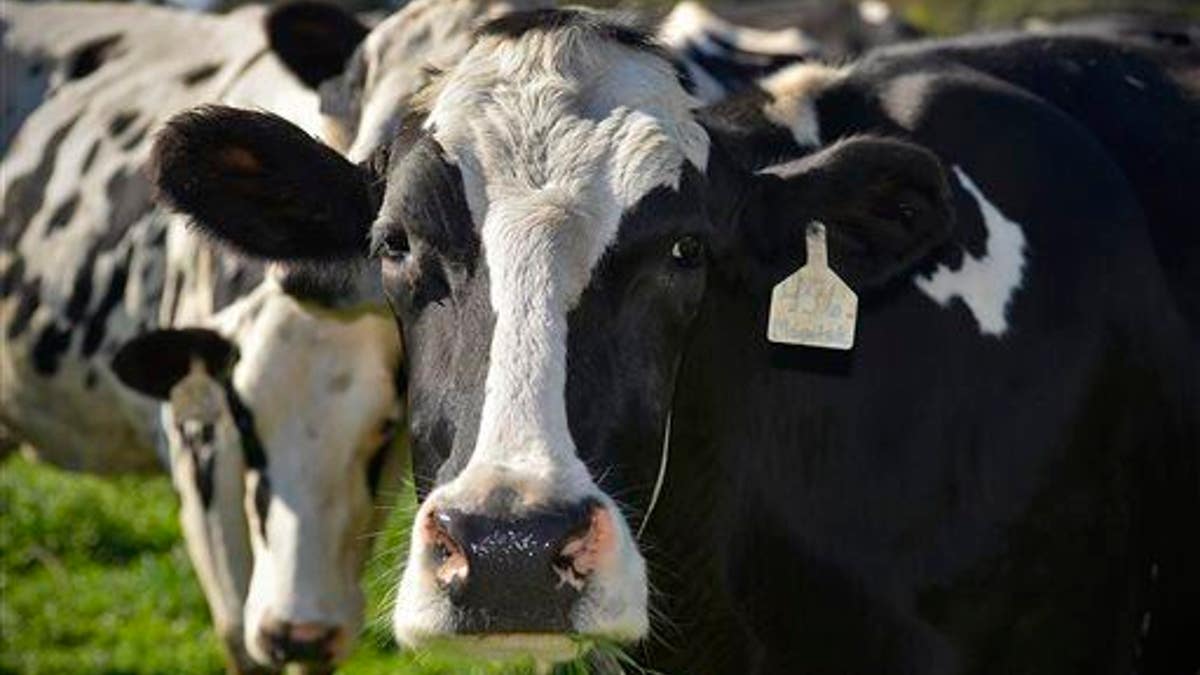
In this photo taken, Friday, Oct. 2, 2015, a cow chews its cud. (AP Photo/St. Cloud Times, Kimm Anderson)
Scientists are urging people to watch what they eat—and drink—in a new study linking a pesticide with Parkinson's disease. Researchers note that, for a time, cattle in Hawaii were likely fed a gruel containing traces of heptachlor, used by American pineapple farmers before it was banned in 1988, per Time.
The cows' milk was contaminated, but "no one knows how long or how widespread the contamination was before being detected," the Parkinson's Disease Foundation says, per NBC News.
To test the possible effects, researchers studied the brains of 116 Japanese-American men in Hawaii who had given information about their milk-drinking habits before they died.
They found men who consumed more than two glasses of milk, or 16 ounces, daily had 40 percent fewer brain cells in the substantia nigra, an area that shows damage in Parkinson's cases, compared to men who drank less than two cups per day.
Some 90 percent of heavy milk drinkers also had heptachlor residue in their brains, compared to 63 percent of those who didn't drink milk. Researchers dated the cell damage to after the accumulation of heptachlor, which suggests the chemical was responsible for the changes.
The team couldn't test milk samples, but they "have no other explanation for how heptachlor epoxide found its way into the brains of men who consumed milk," a study author tells Live Science.
He notes "the vast majority of milk consumers do not get Parkinson's disease," but "this adds to the literature that diet may indeed play a role." The study also backs others suggesting smokers enjoy protection against Parkinson's: Milk drinkers who smoked showed no brain cell loss.
One critic notes participants divulged how much milk they drank some 30 years before they died, so their consumption perhaps changed. (This pesticide has been linked to Alzheimer's.)
This article originally appeared on Newser: In Milk Drinkers, a Scary Link to Pesticide, Parkinson's
More From Newser
